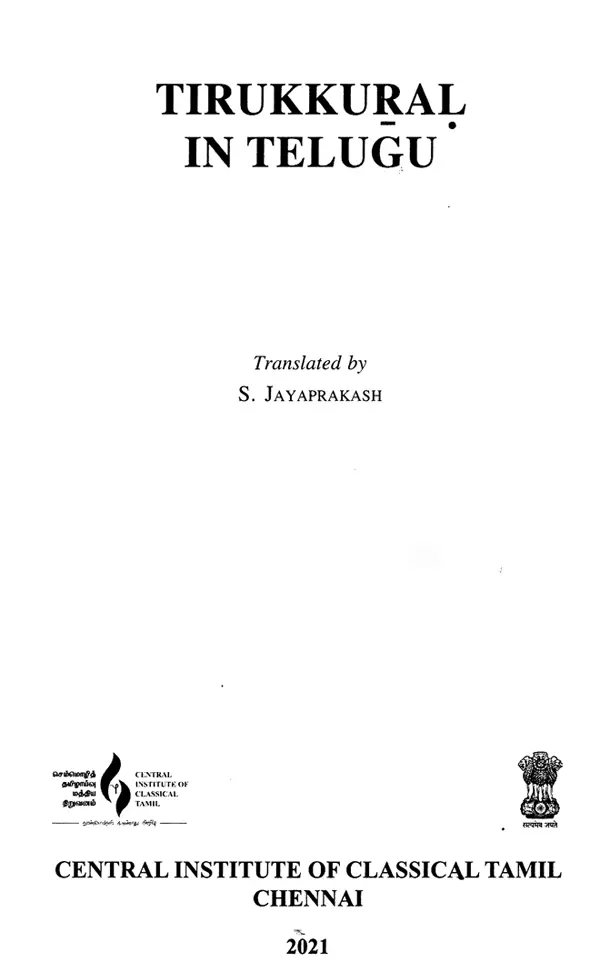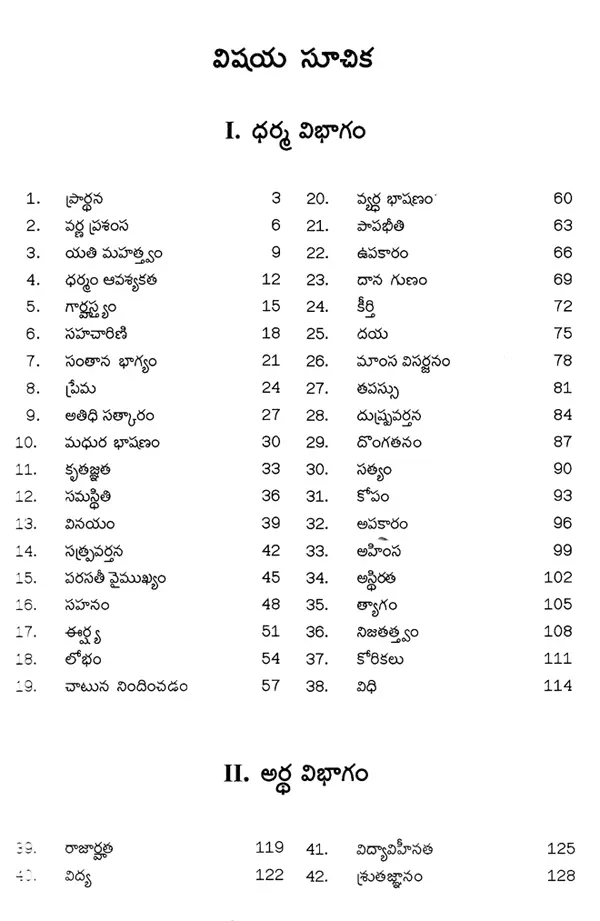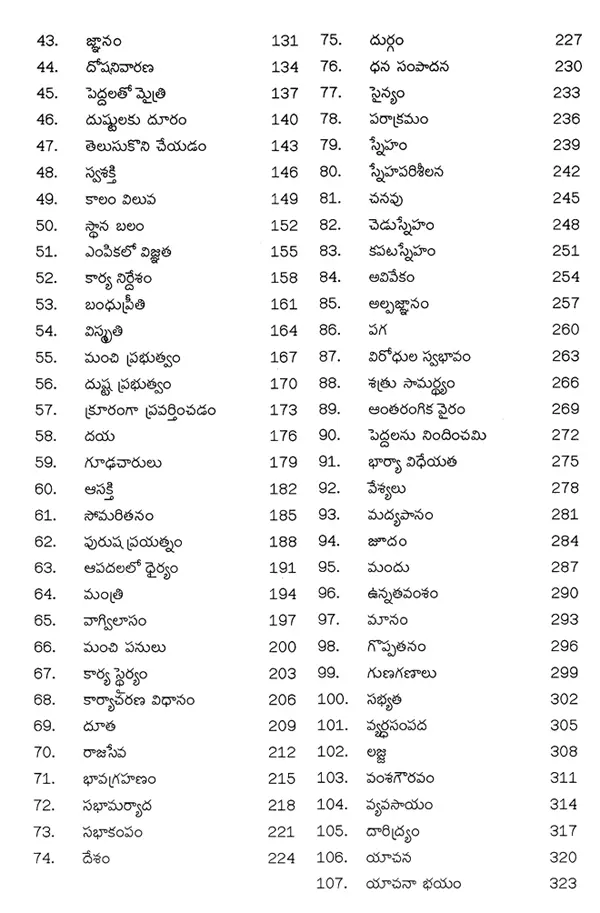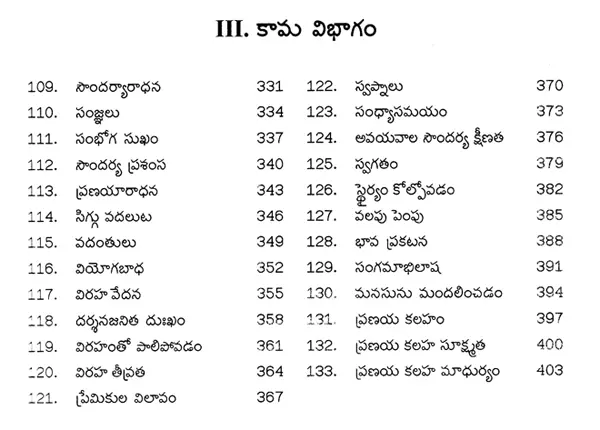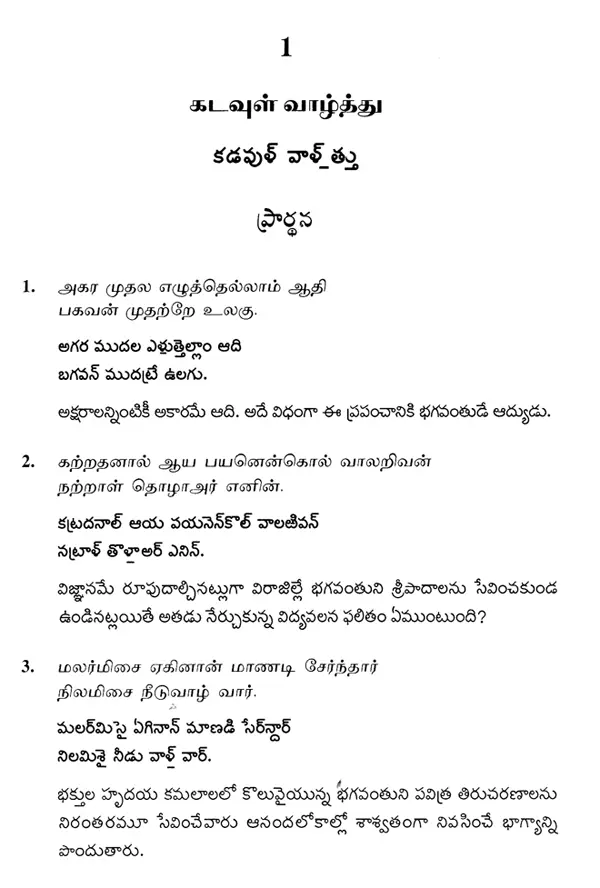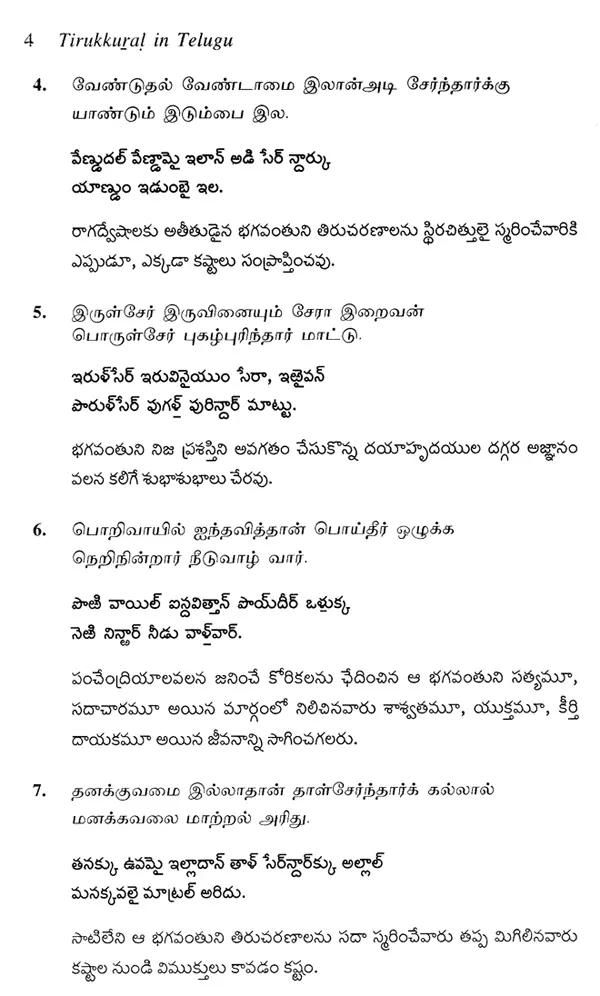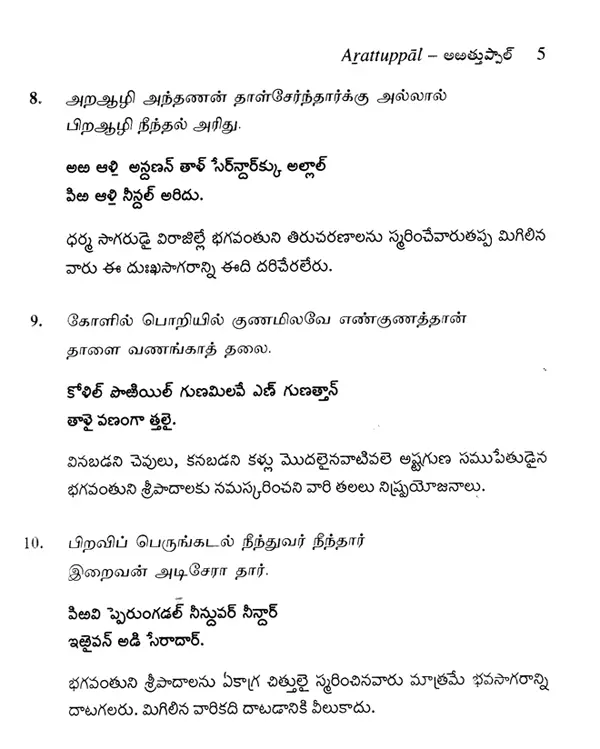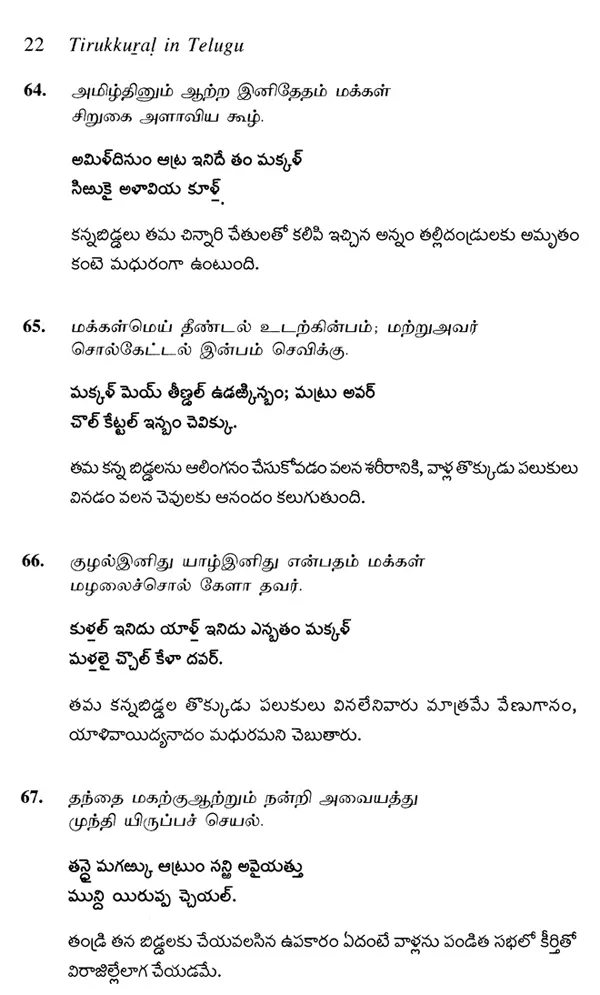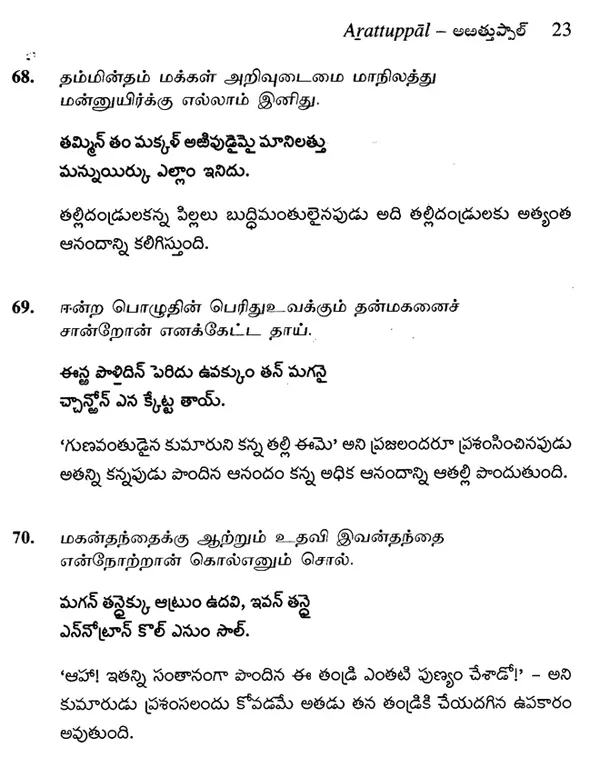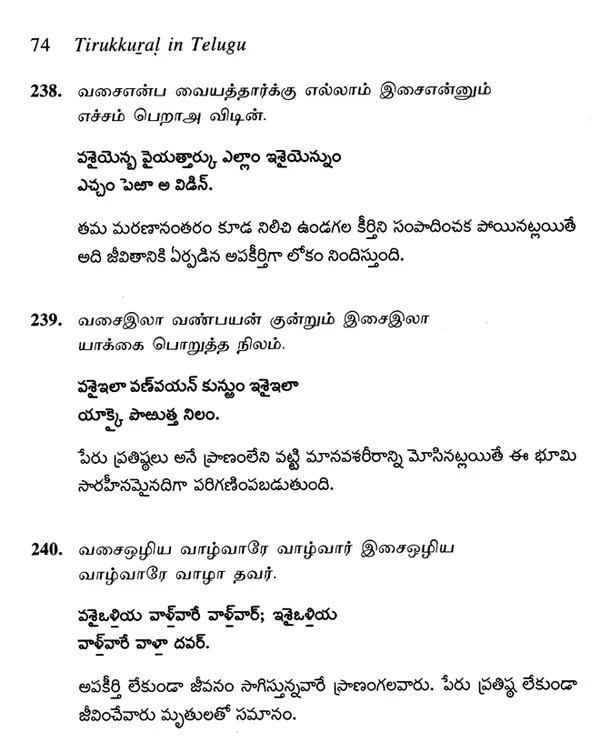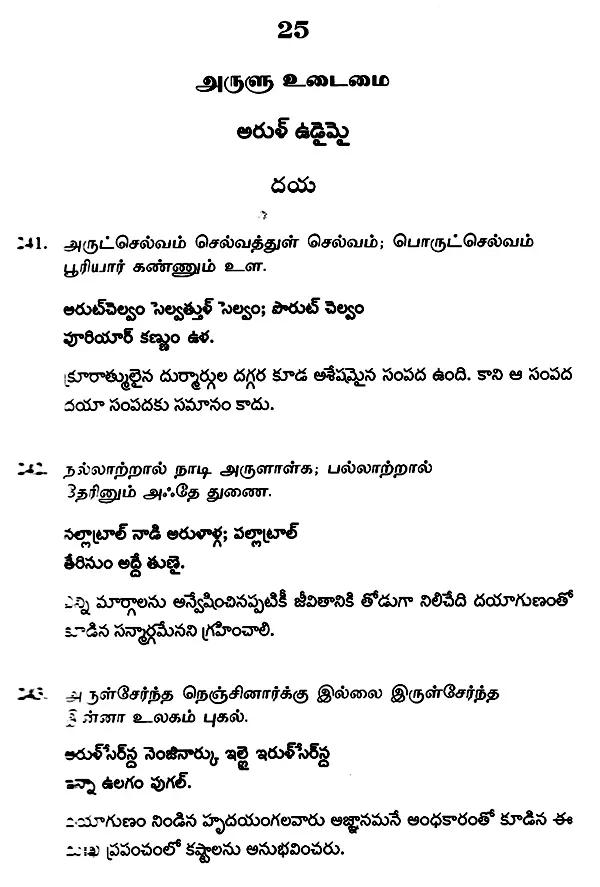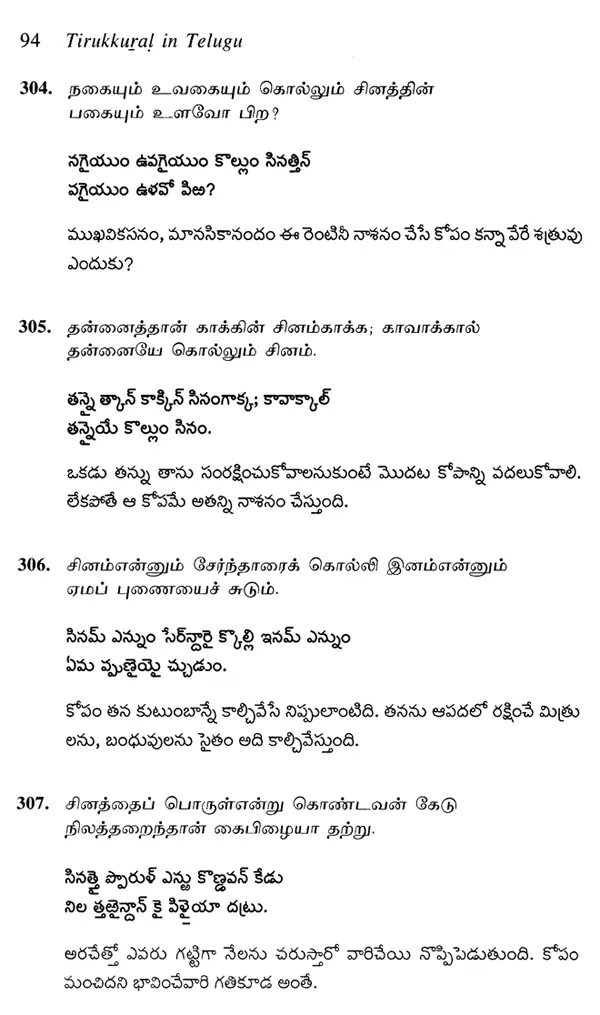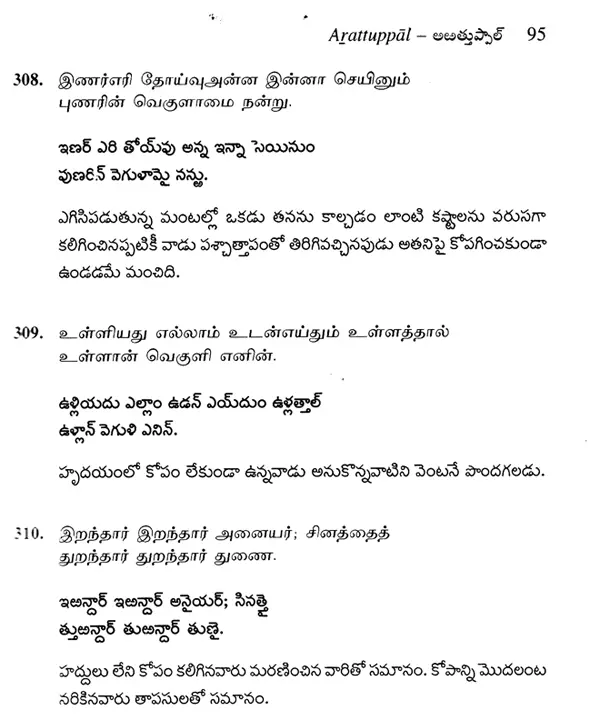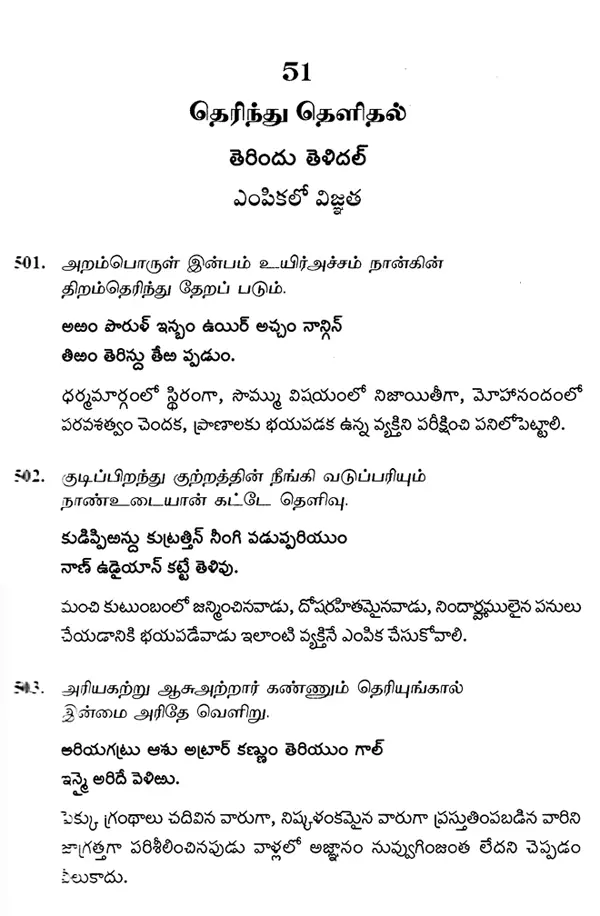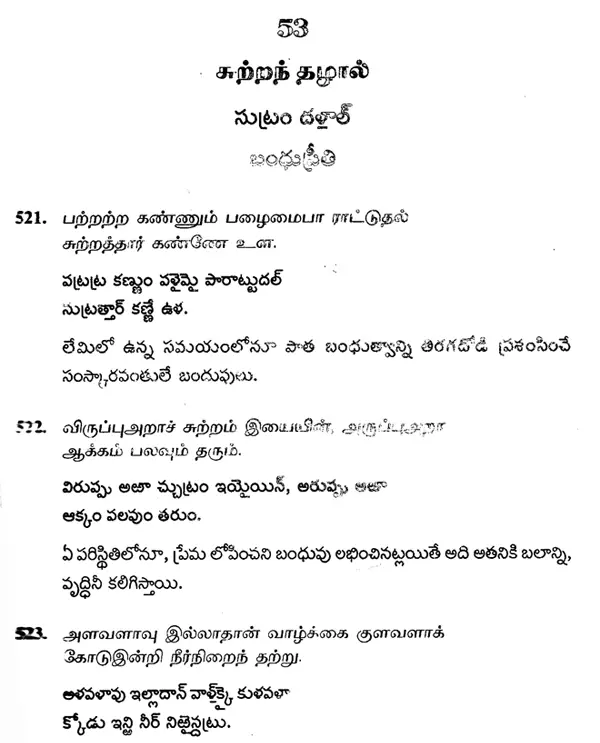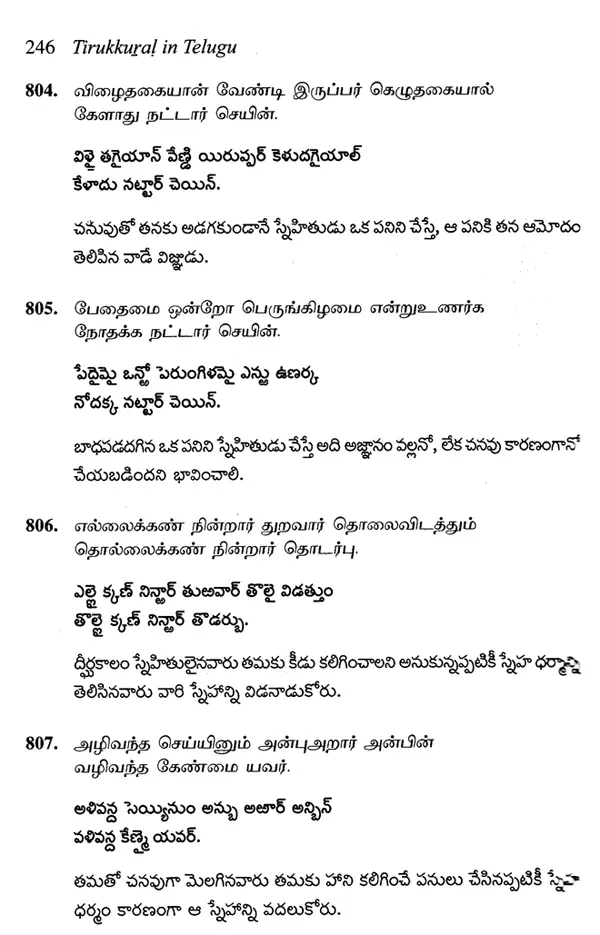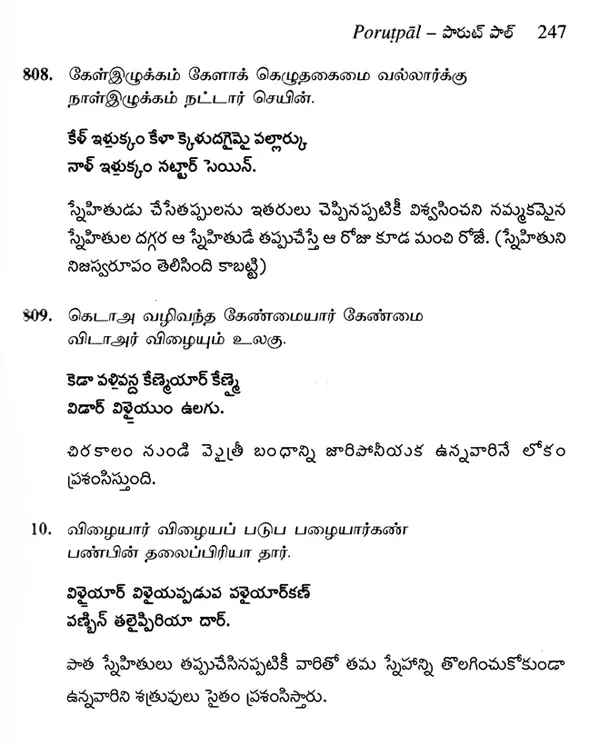
Tirukkural In Telugu (Telugu)
Book Specification
| Item Code: | UAW501 |
| Author: | S. Jayaprakash |
| Publisher: | Central Institute of Classical Tamil, Chennai |
| Language: | Telugu |
| Edition: | 2021 |
| ISBN: | 9789381744048 |
| Pages: | 451 |
| Cover: | HARDCOVER |
| Other Details | 9.40 X 6.00 inch |
| Weight | 750 gm |
Book Description
The Tirukkural, or shortly the Kural, is a classic Tamil language text consisting of 1,330 short couplets of seven words each, or Kurals. The text is divided into three books, each with aphoristic teachings on virtue (aram, dharma), wealth (porul, artha) and love (inpam, kama). Considered one of the greatest works on ethics and morality, it is known for its universality and secular nature. Its authorship is traditionally attributed to Valluvar, also known in full as Tiruva luvar. The text has been dated variously from 300 BCE to 5th century CE. The Kura! is traditionally praised with epithets and alternate titles such as "the Tamil Veda" and "the divine book." It emphasizes non-violence and moral vegetarianism as virtues for an individual. In addition, it highlights truthfulness, self-restraint, gratitude, hospitality, kindness, the goodness of wife, duty, giving, and so forth, besides covering a wide range of social and political topics such as king, ministers, taxes, justice, forts, war, the greatness of army and soldier's honour, the death sentence for the wicked, agriculture, education, abstinence from alcohol and intoxicants. It also includes chapters on friendship, love, sexual union, and domestic life. The Kural has been widely admired by scholars and influential leaders across the ethical, social, political, economic, religious, philosophical, and spiritual spheres over its history. These include Ilanko Atikal Kambar, Leo Tolstoy, Mahatma Gandhi, Albert Schweitzer, Costanzo Joseph Beschi, Karl Graul, George Uglow Pope, Alexander Piatigorsky. and Yu Hsi. The Tirukkural is believed to be the most translated of all literary works in the world, barring religious works like the Bible and the Koran (Diaz 41). There are about 130 translations of the Kural in the languages of the world and in English alone (until March 2006) about 5 translations have appeared. The translation service to the Kural English was started in AD 1794 by N. H. Kindersley and now the history is more than 200 years old. The Kural is considered a masterpiece an one of the most important texts of Tamil Literature. The Tamil people and the government of Tamil Nadu have long celebrated and upheld text with reverence.
The present volume is a commendable translation of the elaborated book into Telugu by Dr S. Jayaprakash.
The Tamils may justly be proud of the fact that Tamil has won the status of a Classical language, the status it richly deserves and should have got long, long ago. The Central Institute of Classical Tamil (CICT), established in Chennai, has mapped out various plans including preparation of definitive editions of forty-one Classical Tamil texts and translation of these works into English and other major European languages as well as into major Indian languages and writing of a historical grammar of Tamil. Language being the autobiography of a people, our objective is to preserve and safeguard the invaluable treasure of the literary compositions in our language. If only we could delve into our past and recover the riches and wealth of the mighty treasure trove of Classical Tamil poetry, we will be amply rewarded by its lofty poetry, the poetry that strengthens and purifies the holiness of heart's affection and enlarges our imagination. Apart from these, reading the ancient Tamil texts such as Tolkappiyam, Ettuttokai, Pattuppattu, Tirukkural etc., provides a foundation for scholarship for the present and in this sense they do provide enlightened education
It is heartening to write this foreword to the series of publications brought out by CICT, which I am sure, will do full justice to the master pieces in Tamil without compromising on the quality of production. The Cankam corpus being a repository of our glorious culture, it behoves our present and future generations to study them and to convey their message and the vision of life embodied in them to the public at large. Let me, therefore, commend the series to the enlightened beings the world over.
Tirukkural, a classic of 1.330 rhymed couplets in 133 sections of 10 distiches each composed in the first century BC is a philosophic poem dealing with the most elemental themes that govern human life; ethics, polity and love. The poem is in three distinguishable parts, Aram, Porul and Inpam. Part I Aram in thirty-eight chapters deals with virtue, moral and cosmic order. Beginning with a prologue in praise of the Almighty, this section expatiates on moral code of conduct, righteousness in private and public life and defines the virtues associated with family life and as crticism. Part II Porul in seventy chapters handles the theme of wealth, social life and political skill. This section is a comprehensive discourse on the rights and duties of the king laws of good governance, duties of an able administrator and ways and means of protecting and guarding one's nation. Part III in twenty-five chapters, divided into two broad subdivisions, discusses secret courtship and the joys of wedded love. This short section presents a number of captivating dramatic scenes, each of which is a brief analysis of the varying moods of lovers.
Tirukkural is at once a moral treatise and a work of art of the highest order. It employs a single metre, the Kuralvenpa, most appropriate to gnomic poetry. The first line of each couplet consists of four feet and the second line, three. This tight structure does not exercise any restraint on Valluvar's imagination. Each couplet "snatches a grace beyond the reach of art." Brevity, it is said, is the soul of wit. The wealth and richness of po et-prophet Thiruvalluvar's concise expressions can be seen in the manifold ways these lyrics have been interpreted by scholars and commentators from time immemorial.
The present volume is a commendable translation of the elaborated book into Telugu by Dr. S. Jayaprakash. I am pleased to thank him for coming forward to undertake this responsibility and bringing it to a successful completion with so much involvement.
I am thankful to the Department of Translation of the Institute and the Publications Division for their help in bringing this volume.
